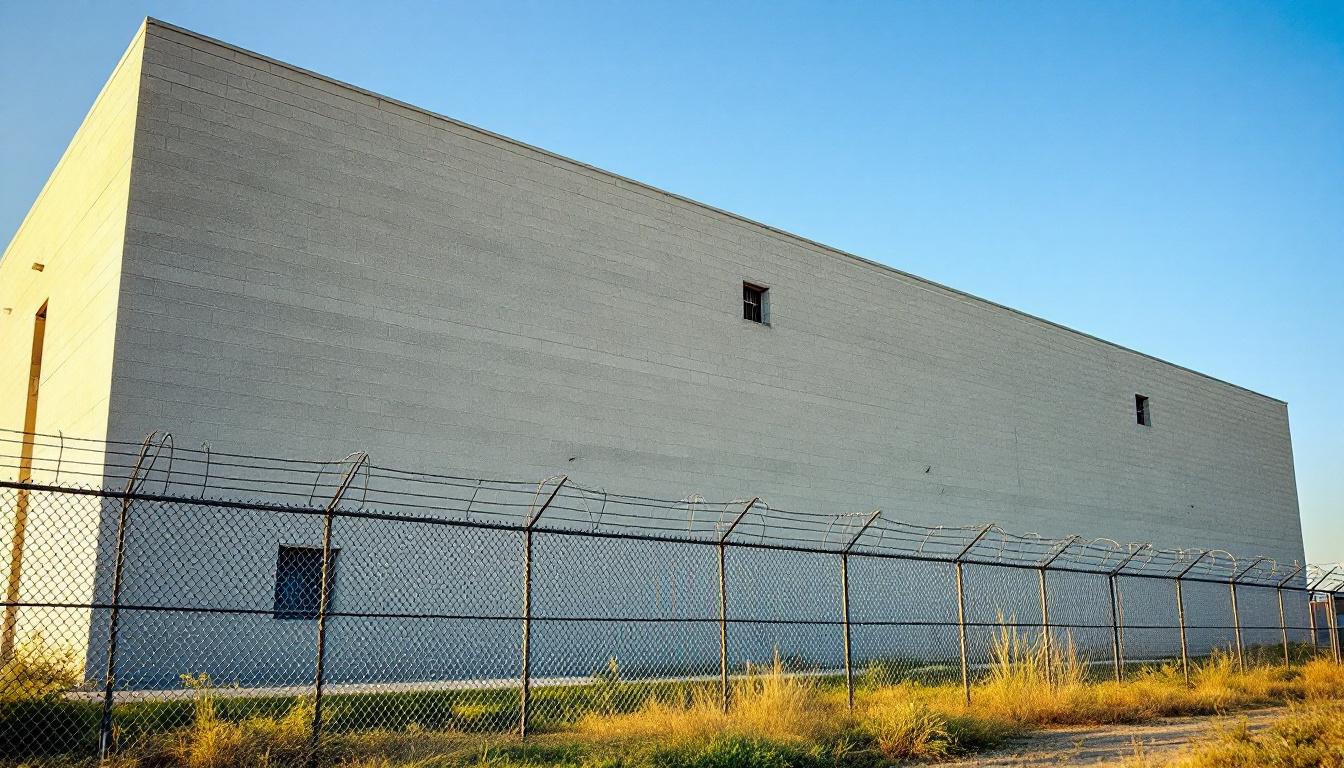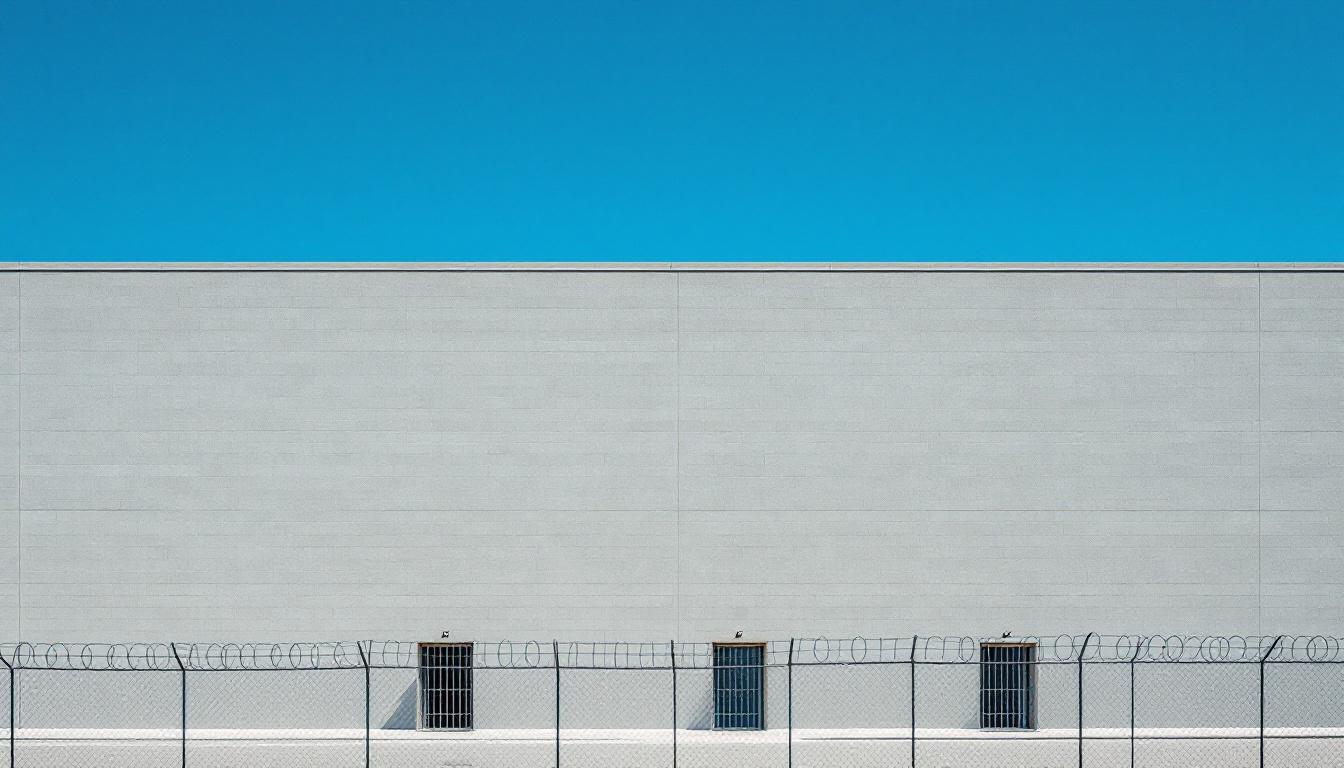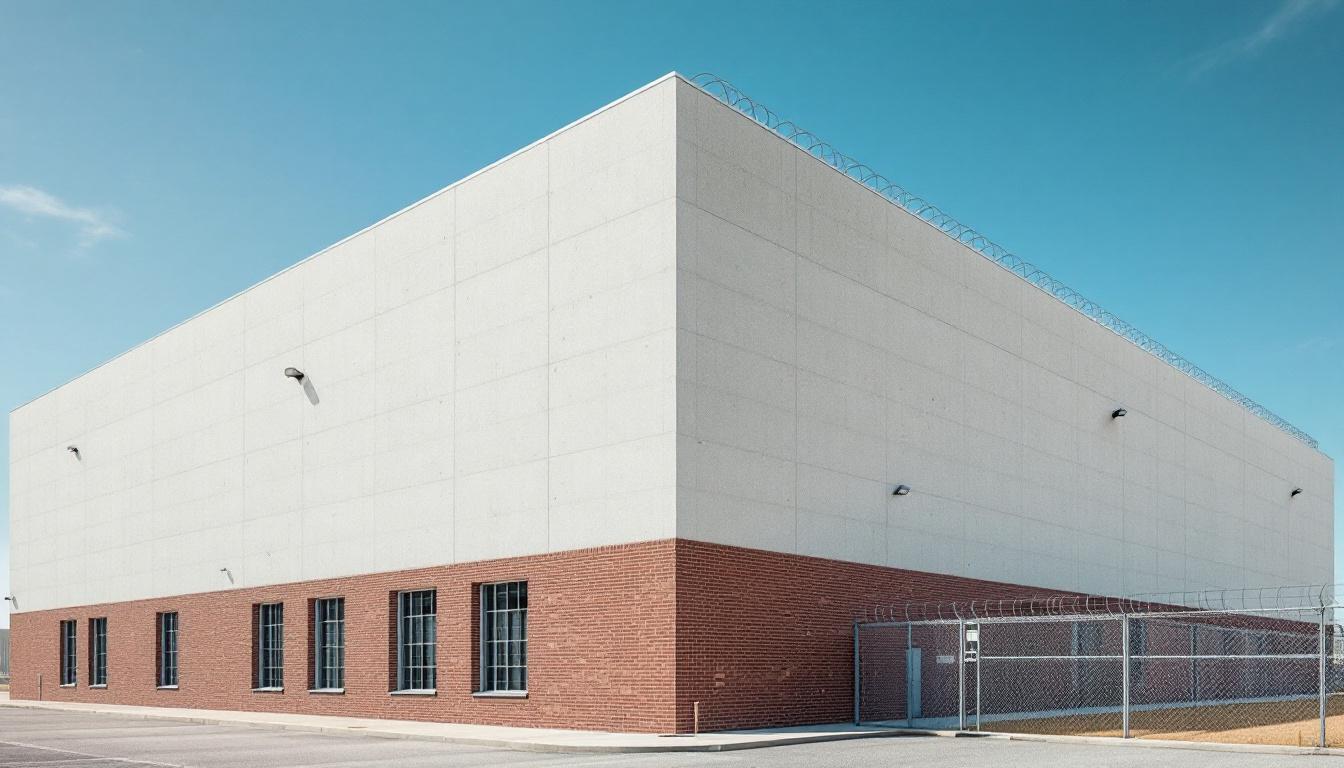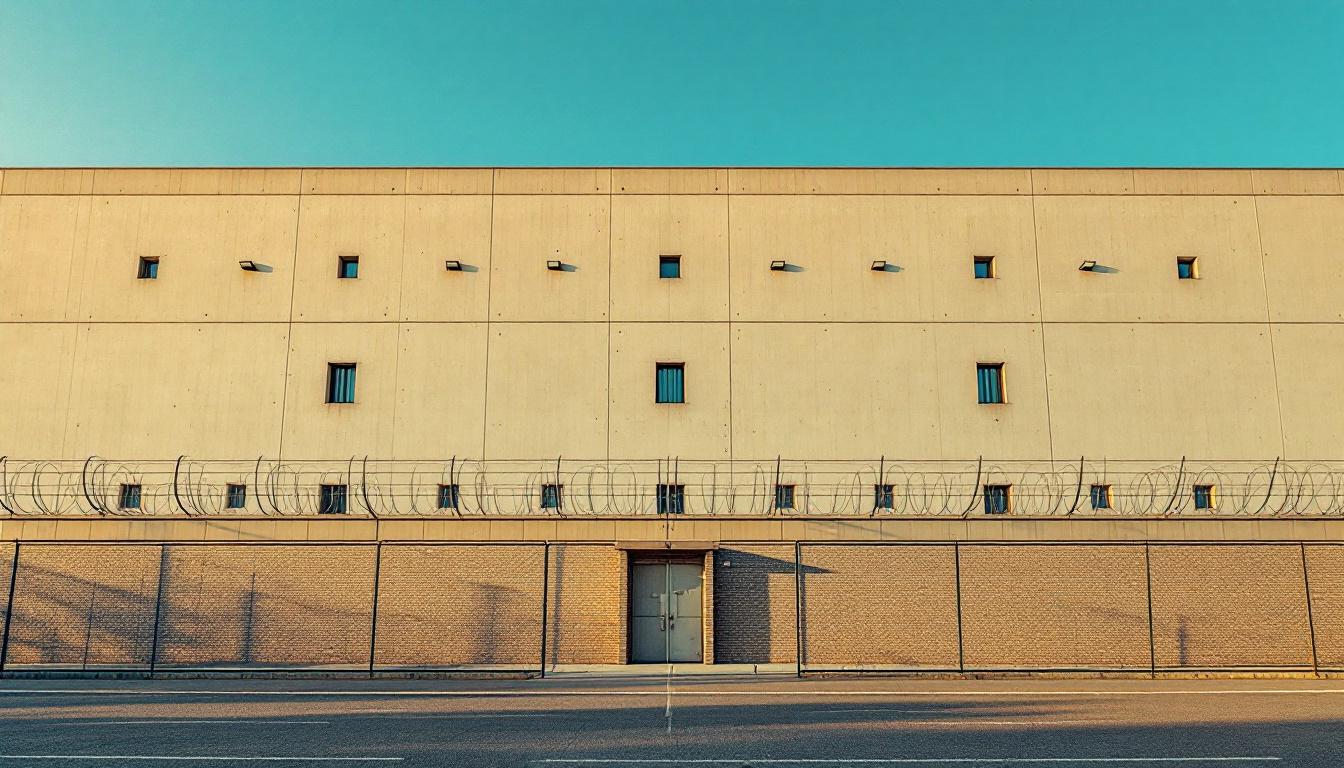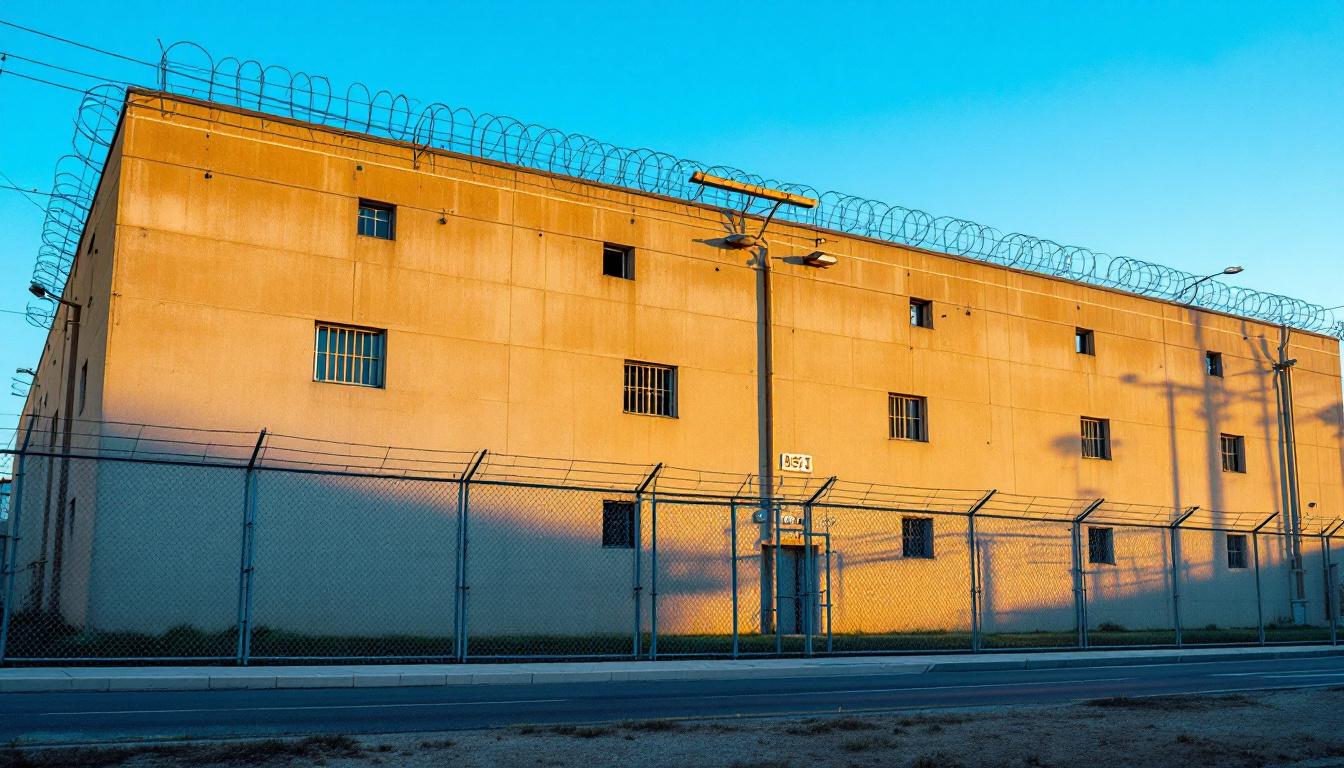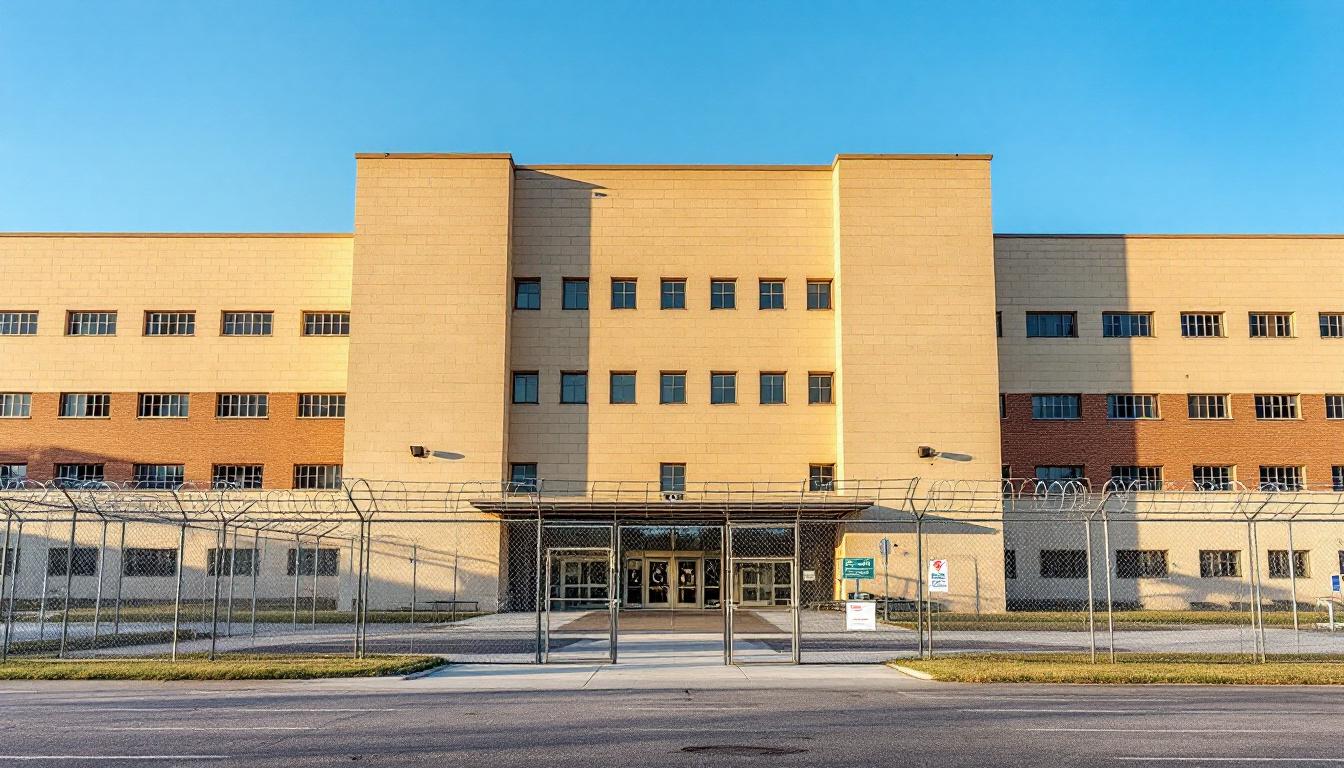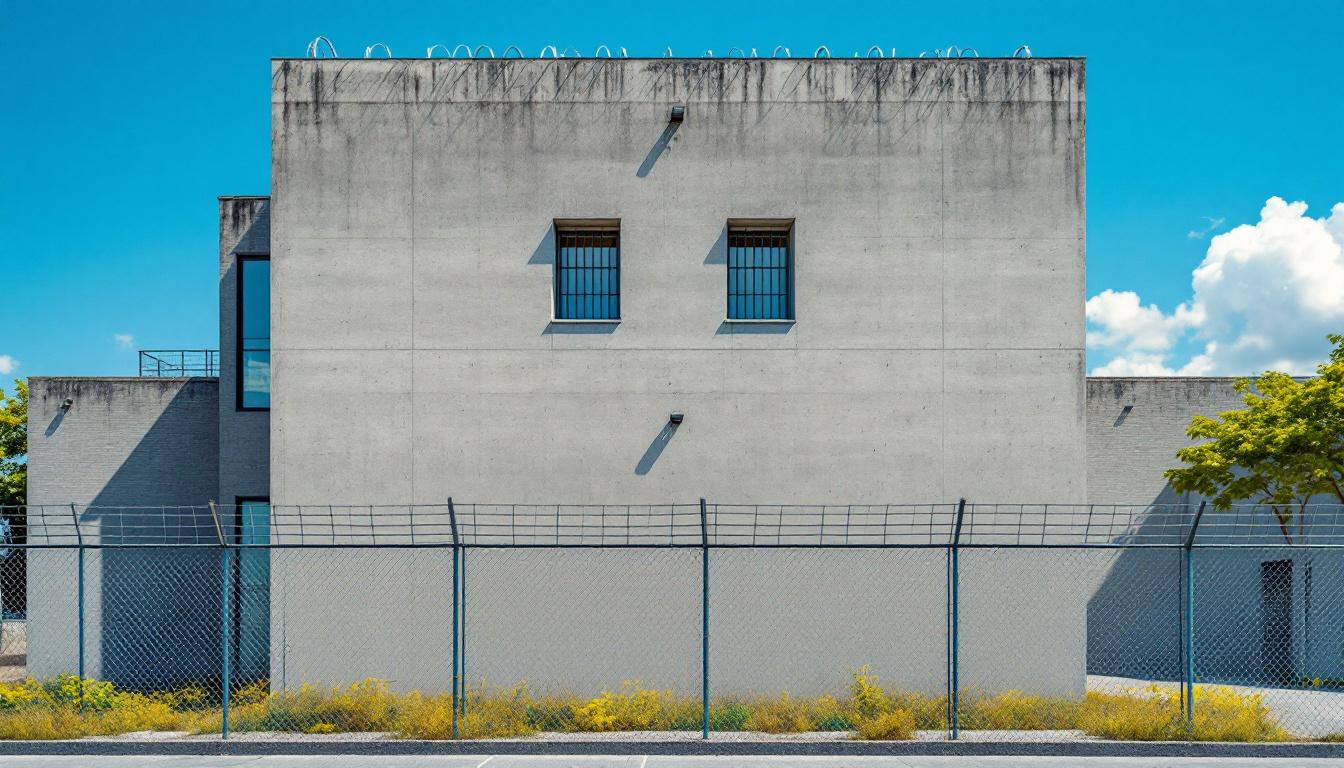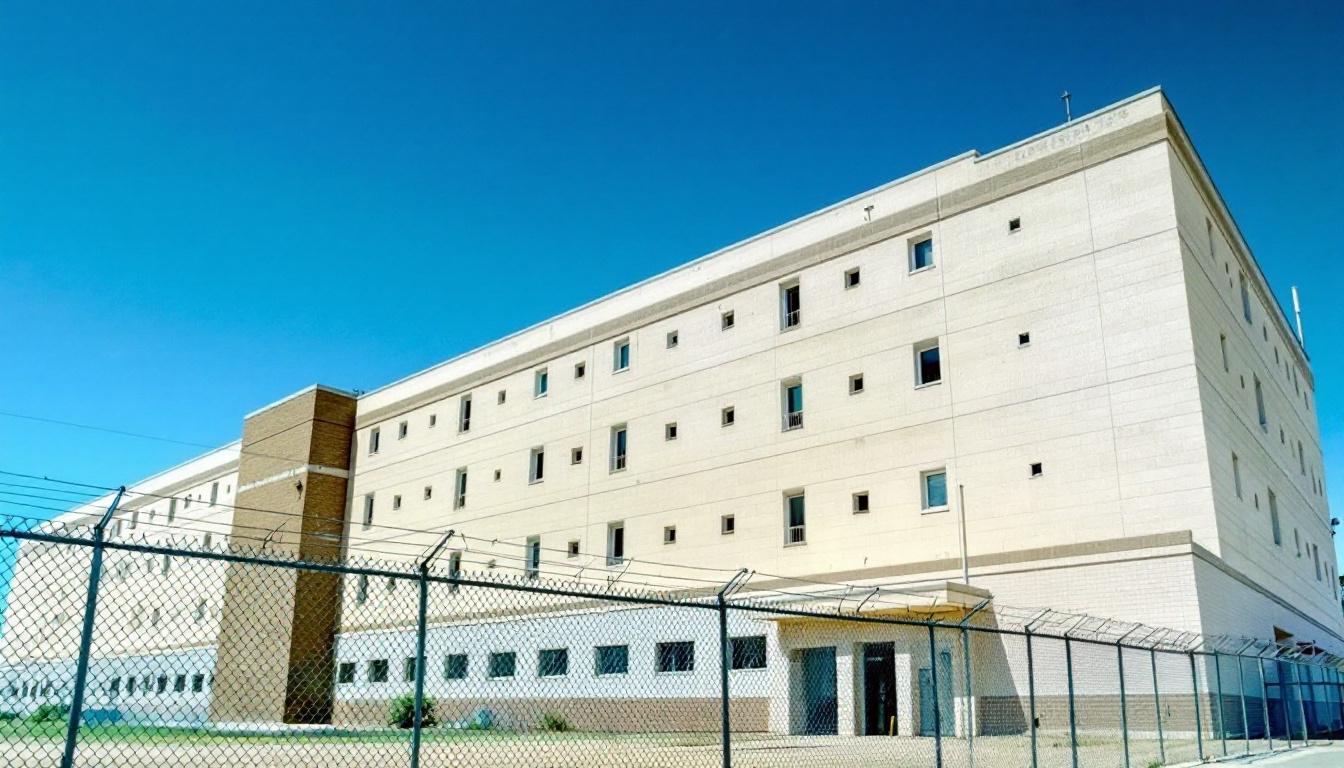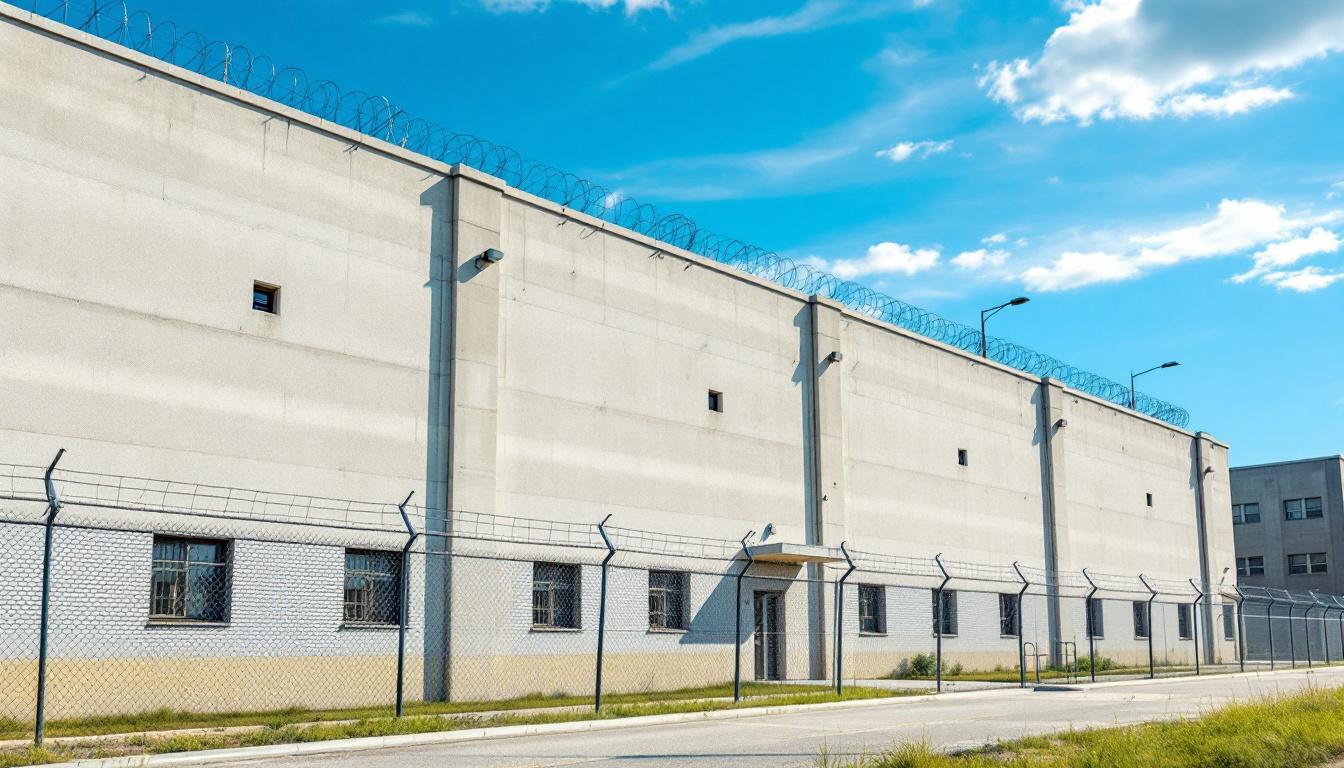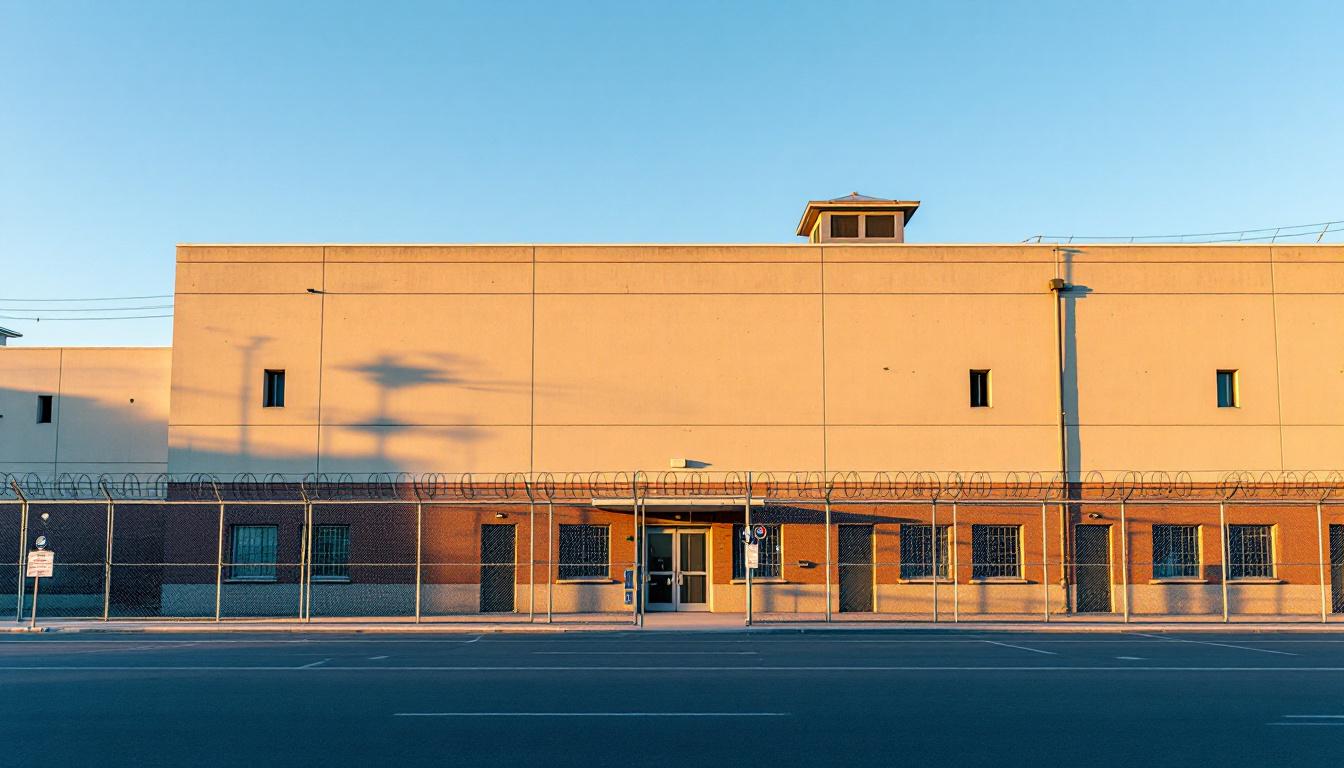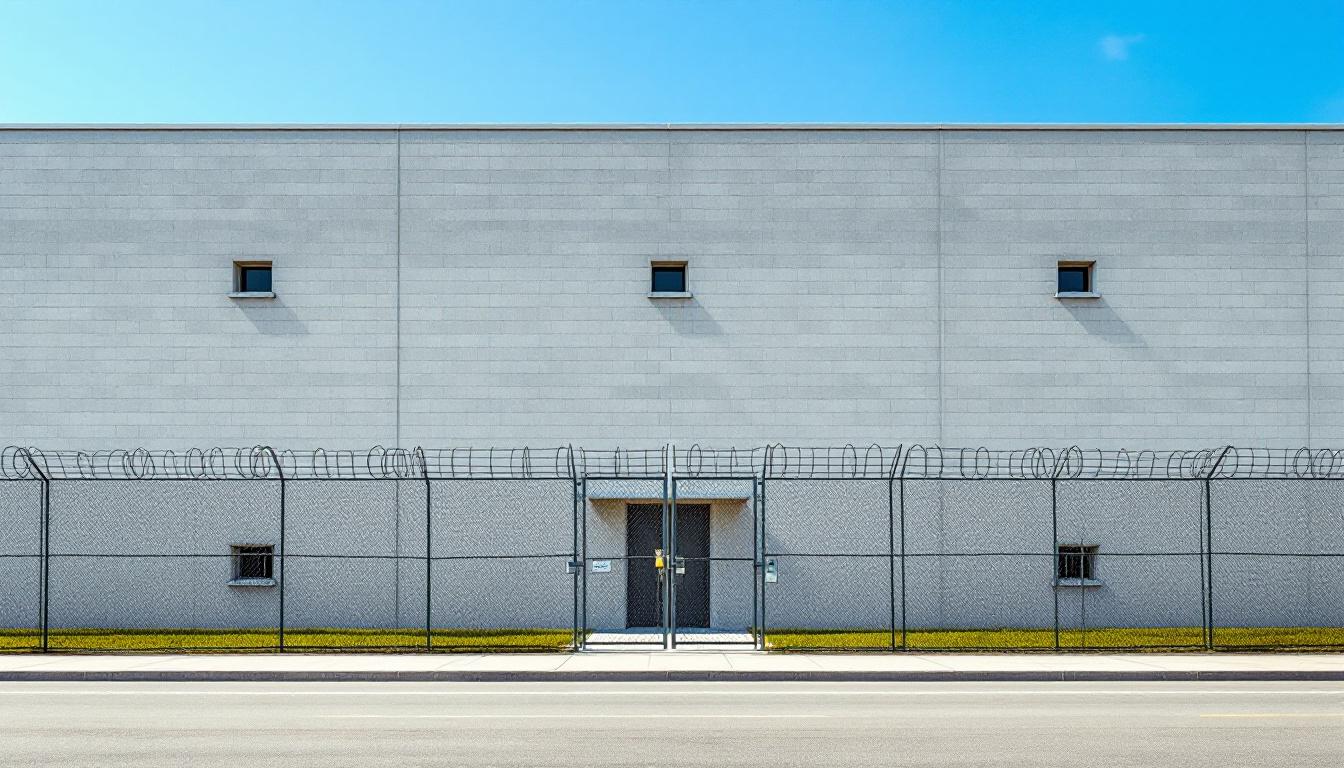
Quick Navigation
How to contact an inmate at St Louis City Justice Center
This comprehensive guide will walk you through how to connect with an inmate at St Louis City Justice Center. Follow the steps below to find an inmate and send letters and photos:
- Search for the inmate using our search tool below
- Create your account or log in to Penmate
- Write your message (up to 6,000 characters)
- Send instantly - inmates receive printed copies daily
Find an Inmate
Search for an inmate to start communicating today
Tip: You can search by first name, last name, or inmate ID number
To contact a person at St Louis City Justice Center start by searching for the person on the official facility website. Perform a search by following these steps:
- Step 1: Enter their first name and last name into the search form and click "Search"
- Step 2: Locate their inmate record
- Step 3: Write down their Inmate ID and any housing information provided
Important! Be sure to enter the person's full name. Nicknames should not be used.
How to Send Messages to Inmates

You can use your phone or computer to send emails, letters, and photos to an inmate. Messages are sent electronically to inmate tablets or kiosks at the facility. If you would like to send a message, start by searching for an inmate at St Louis City Justice Center.
Sending Photos and Postcards

A great way to send love and support to a loved one at St Louis City Justice Center is to send photos and postcards. It only takes a few minutes to send photos from your phone and it makes a huge difference. You can also mail postcards with words of support and inspiration, or design your own postcard for special moments like birthdays and holidays.
Important! Be sure not to send any explicit photos or they may not be approved by the facility. You can also use a photo printing app like Penmate to make sure your photos are printed at the correct size (4x6 or 3x5) and are mailed according to the rules and regulations of St Louis City Justice Center.
Frequently asked questions about St Louis City Justice Center
-
How long does it take to deliver a message?
If you're sending an email message your letter is usually delivered within 24-48 hours. For messages sent via mail you should expect delivery within 3-7 days. All messages will need be approved by St Louis City Justice Center.
-
How much does it cost to send a message to St Louis City Justice Center?
You can send a message free using your phone or mail a message via USPS for the price of a $0.60 stamp and envelope. You can also purchase credits or e-stamps from services starting at $1.99.
-
What services can I use to contact an inmate at St Louis City Justice Center?
Penmate
You can use Penmate to send letters and photos to an inmate from your phone. It's an easy way to stay in touch during your loved one's incarceration. Use the inmate locator to find an inmate's location and contact information, then you can send messages within a few minutes.
Securus messaging
Securus may be another option for communicating with an inmate at St Louis City Justice Center. You can create a friends and family account and purchase credits to send messages. All messages will be reviewed and must be approved by the facility.
JPay
Some county jails and state prisons may support sending messages with JPay. You must register an account with the system, find your loved one, and purchase stamps to send messages. For some locations you can also attach photos.
Smart Jail Mail
You may also check if Smart Jail Mail is available at St Louis City Justice Center. Smart Jail Mail is operated by Smart Communications and has contracted with some state and county jails. After purchasing credits, your messages and photos are sent to the facility, printed out, and then handed out to your loved one.
-
What is the mailing address of St Louis City Justice Center?
Mailing address:
St Louis City Justice Center
200 S Tucker Blvd
St. Louis, MO 63102
Phone: (314) 621-5848Business hours:
- Monday: Open 24 hours
- Tuesday: Open 24 hours
- Wednesday: Open 24 hours
- Thursday: Open 24 hours
- Friday: Open 24 hours
- Saturday: Open 24 hours
- Sunday: Open 24 hours
-
What are the visiting hours at St Louis City Justice Center?
Visiting hours at St Louis City Justice Center vary by housing unit and security level. Generally, visits are scheduled on weekends and holidays, with some facilities offering weekday visits. Contact the facility directly at (314) 621-5848 or check their website for the current visiting schedule. Visits typically last 30-60 minutes and must be scheduled in advance.
-
What items are prohibited when sending mail to St Louis City Justice Center?
Prohibited items typically include: cash, personal checks, stamps, stickers, glitter, glue, tape, staples, paperclips, polaroid photos, musical or blank greeting cards, hardcover books, magazines with staples, and any items containing metal or electronics. Only send letters on plain white paper with blue or black ink. Photos must be printed on regular photo paper (no Polaroids). Always check with St Louis City Justice Center for their specific mail policies.
-
How do I send money to an inmate at St Louis City Justice Center?
You can send money to an inmate at St Louis City Justice Center through several methods: 1) Online using JPay, Access Corrections, or the facility's approved vendor, 2) Money orders mailed directly to the facility with the inmate's name and ID number, 3) Kiosks located in the facility lobby, or 4) Over the phone using a credit or debit card. Fees vary by method, typically ranging from $2.95 to $11.95 per transaction.
-
Can I schedule a video visit with an inmate at St Louis City Justice Center?
Many facilities now offer video visitation as an alternative to in-person visits. At St Louis City Justice Center, video visits may be available through services like Penmate, Securus Video Connect, GTL, or ICSolutions. Video visits typically cost $10-20 for 20-30 minutes and must be scheduled in advance. You'll need a computer or smartphone with a camera and reliable internet connection. Contact the facility for their specific video visitation policies and approved vendors.
-
What identification do I need to visit an inmate at St Louis City Justice Center?
All visitors must present valid government-issued photo identification such as a driver's license, state ID, passport, or military ID. Minors must be accompanied by a parent or legal guardian who can provide the minor's birth certificate. Some facilities require visitors to be on the inmate's approved visitation list, which may require a background check. Contact St Louis City Justice Center for specific ID requirements and visitor approval procedures.
-
How can I find out an inmate's release date?
To find an inmate's release date at St Louis City Justice Center, you can: 1) Use the online inmate search tool if available, 2) Call the facility's records department, 3) Contact the inmate's case manager or counselor, or 4) Have the inmate provide this information during a call or visit. For privacy reasons, some facilities only release this information to immediate family members.
Facility Overview
Contact Information
St Louis City Justice Center200 S Tucker Blvd
St. Louis, MO 63102
Phone: (314) 621-5848
Official Website
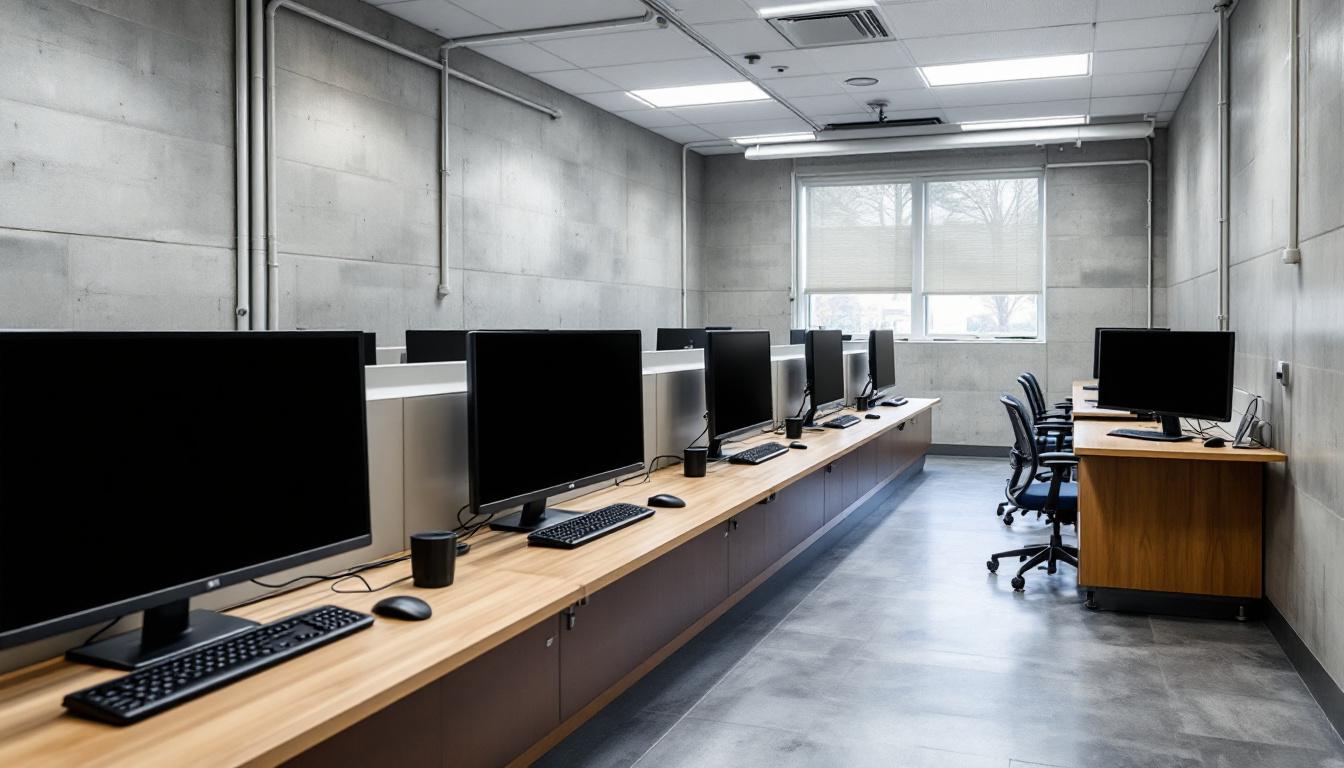
About St Louis City Justice Center
The St. Louis City Division of Corrections provides comprehensive services to support both incarcerated individuals and their families through various programs and resources. Visitors can access an online searchable database to locate inmates, submit attorney visit request forms for legal consultations, and receive detailed instructions for posting bail or bond after an arrest. The facility serves the community by offering volunteer opportunities for those interested in working with residents, while also maintaining systems for sending money to inmate commissary and telephone accounts, requesting medical records, and facilitating the return of personal property.
Situated in St. Louis, Missouri, the City Justice Center operates as a modern facility that opened in 2002, featuring a six-story building designed to accommodate up to many individuals. The Division of Corrections maintains transparency through daily inmate population data reports and offers various inmate programs during incarceration periods. The facility typically provides standard correctional services including medical care, with records maintained for extended periods, and may offer educational and rehabilitative programming common to modern correctional institutions.
The Justice Center serves St. Louis residents through its comprehensive approach to corrections, combining secure housing with community engagement opportunities. Families and legal representatives can access multiple communication channels and visitation options, while the facility’s volunteer programs create pathways for community members to contribute to rehabilitation efforts and support services for incarcerated individuals.
Programs & Services
The St. Louis City Justice Center operates a comprehensive Division of Corrections that emphasizes both custody and rehabilitation through various inmate programs designed to support individuals during their incarceration. As a modern facility that opened in 2002, the six-story building with capacity for many individuals provides structured programming opportunities alongside essential services. The facility maintains strong community connections through volunteer opportunities that allow citizens to work directly with residents, fostering meaningful engagement between the community and those in custody.
Educational and vocational programs at the facility typically focus on helping individuals develop practical skills for successful reintegration. These may include basic literacy and GED preparation courses, computer training, and vocational workshops in areas such as culinary arts, maintenance, or other trade skills. The center often provides substance abuse counseling and mental health services, recognizing that addressing underlying issues is crucial for reducing recidivism. Religious services and spiritual counseling are commonly available, along with life skills programs that cover topics like financial literacy, anger management, and job readiness preparation.
Support services extend beyond traditional programming to include comprehensive family communication systems and reentry planning assistance. The facility maintains detailed medical records for residents and provides healthcare services during incarceration. Through partnerships with local organizations and faith-based groups, the Justice Center may offer additional counseling services, educational workshops, and mentorship programs. These collaborative efforts, combined with the facility’s volunteer program, create a network of support designed to help individuals successfully transition back to the community while maintaining public safety.
Daily Life & Visitation
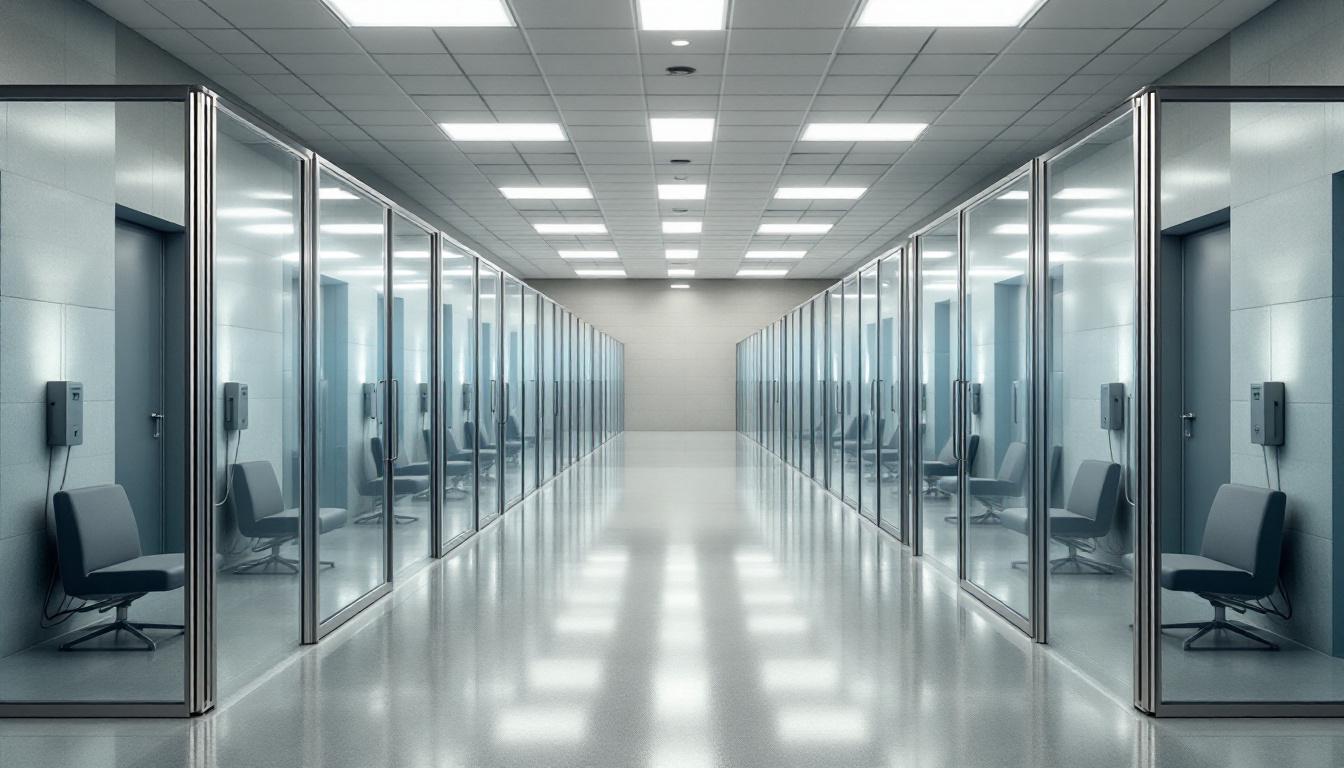
The City Justice Center operates as a six-story, modern facility that has housed inmates since opening in 2002, with a capacity for 860 residents. Inmates typically begin their days with scheduled counts and meal service, followed by various programming opportunities that may include educational classes, vocational training, or counseling sessions. The facility’s modern design allows for different housing units across multiple floors, where inmates are generally assigned based on factors such as security classification, legal status, and program participation needs.
Family connections remain an important aspect of life at the facility through the structured visitation program. Visitors can schedule appointments to see residents, and the facility provides clear guidelines for those wishing to visit loved ones. Inmates can also maintain contact with family and friends through the telephone system, which operates through individual inmate accounts that can be funded by outside sources. The commissary system allows inmates to purchase additional items beyond basic necessities, with money deposited into their accounts by family members or friends following established procedures.
The Division of Corrections offers various volunteer opportunities that bring community members into the facility to work with residents, suggesting that inmates have access to programming and services beyond basic detention. These may typically include religious services, educational support, life skills training, or recreational activities. Inmates awaiting trial or serving sentences can also work with their attorneys through scheduled legal visits, including both contact visits during regular hours and special no-contact visits when needed outside normal visiting times.
Ready to Connect?
Start communicating with your loved one today
Search for an Inmate
